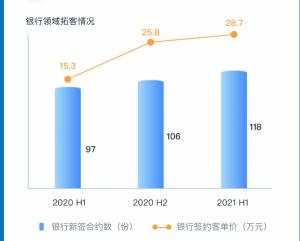In a recent interaction at the 2024 Berkshire Hathaway Shareholders Meeting, James Early, the Chief Investment Officer of BBAE, shared his insights and reflections with us. Attending the event annually since 2018, Early has garnered unique perspectives from the wisdom of Warren Buffett and the assembly of thought leaders present at these gatherings.
Throughout the interview, Early discussed the alignment of Buffett’s strategies with BBAE’s investment approach, particularly highlighting how their long-term investment philosophy is influenced by Buffett’s teachings. The discussion also ventured into the impacts of macroeconomic factors such as global warming, inflation, and the changing policies of the Federal Reserve on future investment strategies. This conversation sheds light on the complexities of modern investment environments and the evolving challenges and opportunities faced by institutional investors in a rapidly changing economic landscape marked by technological advancements and shifting market dynamics.
Wall Street Frontline: how many times have you been to the Berkshire Shareholder’s meeting?
James Early: I have been attending the event every year since 2018. Obviously, during Covid, they didn't have it for a couple of years, but I wish I had started coming a lot sooner because it's a great event.
Wall Street Frontline: Having attended the Berkshire shareholders meeting so many times, were there any insights or lessons from Warren Buffett and other speakers that have resonated with your investment strategy as well as BBAE’s investment strategies?
James Early: That's a great question. Let me just say the first thing that resonated with me today was when Warren turned to Charlie and said, 'Charlie, what do you think about that?' It was a touching moment, and everyone in the audience, all 45,000 people, could feel it. In terms of investment strategy, at BBAE, we like Warren Buffett. In fact, we have a whole tool on the discover part of our app where you can see his portfolio. We don't recommend that anyone just blindly buy what Buffett owns for that reason, but he's been an inspiration for a generation of investors. It's just unfortunate because so many people are following Buffett now that he can't make the returns that he used to. This high-quality, best-of-breed type of investing is great and it makes the world better by the way, because you're finding good companies and avoiding bad ones, and that's what an investment should do. If you're just day trading or doing some chart pattern, you're just making noise in the market. Buffett was really the first person to popularize the idea of just finding good companies, which is obvious now, but it was not so obvious in the past. In terms of what I've learned, I've learned to prioritize things that are going to last, meaning a moat, a competitive edge, a durable advantage. That's what Buffett's done, and that's why value investment has yielded him 3.8 million percent returns through Berkshire Hathaway's history.
Wall Street Frontline: So, were there any particular industries or sectors highlighted during these Berkshire annual meetings that BBAE is considering investing in or actually already actively investing in?
James Early: Well, I'll give you one example from the negative side, which is the energy sector. If you look at the results for Berkshire Hathaway this year, insurance did well, unlike last year. However, railroads did not perform as well, and energy was especially bad. This was largely due to a lawsuit involving the western company Pacific Corp related to wildfires. Warren Buffett and Greg Abel, who runs the energy unit, are upset about this and they're planning to countersue or appeal. Their argument is that they should not be held responsible; instead, they attribute the cause to global warming. They argue that making utility companies act like insurance companies against climate risk is unfair. This case affects not only Berkshire but also has significant implications for the entire utility industry. Traditionally, I have loved utility stocks, but now I'm more cautious. If the government privatizes utilities, it will result in less dividend investing.
Wall Street Frontline: So, we just talked about some of the macroeconomic issues, for example, the environment, global warming, as well as inflation, as they were mentioned during this morning's meeting. What are your views on these macroeconomic issues and how would they affect your investment strategies?
James Early: Well, that's a great question. One of the best and most unique things about Buffett is that he really doesn't care too much about macroeconomic factors. He invests with such a long-term perspective that those macro factors gradually even out. In other words, whether inflation is high or low, orinterest rates are high or low, doesn't much affect his strategy. We've just come from 13 to 14 years of an extremely low interest rate climate, which created a different set of economic dynamics. For instance, companies that would normally never see their stock price rise, like biotech companies or risky tech companies, experienced massive gains. Now that era is over; we've returned to normal interest rates. So, I think there will be a return to value investing, areturn to high quality companies that don’t rely heavily on debt and actually generate earnings. This suits Warren Buffett well. He didn't perform exceptionally over the past 12 to 13 years, and being as big as he is, he'll probably just match the market. But I think the macro conditions are now more in his favor.
Wall Street Frontline: Right now, the Federal Reserve's policy is to insist on 'higher for longer.' They have stated that the low interest rate environment has ended. Looking ahead, what do you foresee as the biggest challenges or opportunities for institutional investors?
James Early: Well, I think the biggest challenge for institutional investors is the presence of so many other institutional investors. If you look at Buffett when he started, you know, Ben Graham was his mentor and he used to tell Buffett to find companies trading for less than the value of their cash. That's impossible today because that opportunity is all used up. Buffett made his best returns during the 1950s when he was doing just that. Then, Buffett found these high return on invested capital and high return on equity companies. That's great too, but guess what? There are 45,000 people in this room, and we're all trying to do the same thing. The way the markets work is that people chase the money out of a style. So, my question is, what's the next Warren Buffett going to do? Is it really about finding specific companies now, or is it about identifying factors that make companies good? Someone there named Larry Swedroe argued that Buffett is not a good stock picker but was actually a good factor picker. He found certain characteristics of quality companies, and if you had just created a quality company index years ago using a simple screen, you would get returns similar to Buffett. Now that might be an exaggeration, and it's not a bad thing for Buffett because he's picking good qualities, but my point is, what's the Buffett of the future because there are so many people trying to be like Buffett now? To really make money, whether as an individual or an institution, you've got to be one step ahead.
Wall Street Frontline: With the constant advancement in technology, for example, artificial intelligence, do you think value investment still applies to today's economic environment?
James Early: That's a really good question. Yes, you always want to find an undervalued stock. The question is, are you finding an undervalued stock because it's going to grow better than the market expects, or maybe it's just been beaten down too much? That's really the only difference between growth and value investing. So, I don't think artificial intelligence right now can only see what the crowd is doing. You look at ChatGPT, it just sums up what's out there. Investing is a social science, not a mathematical science; people misunderstand it. You need to be a little bit ahead of the crowd. I tend to think the way to make money in the future is going to be the same as the past: you've got to exploit people's behavioral finance weaknesses. In other words, we're humans and we have mental weaknesses that leave opportunities in the market. Another thing is passive indexing, where a huge amount more money than is actively invested now is passively invested through ETFs that just blindlyholdfive hundreds to thousands stocks. That leaves opportunities for individual stock pickers because those funds just buy everything, which creates inefficiency. So, you've got to do something the other people aren't doing, but with AI and tech in general, it becomes harder every year.
郑重声明:此文内容为本网站转载企业宣传资讯,目的在于传播更多信息,与本站立场无关。仅供读者参考,并请自行核实相关内容。




